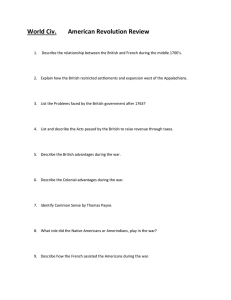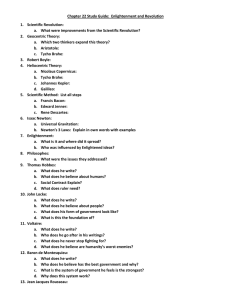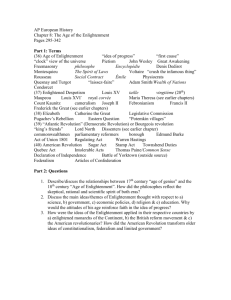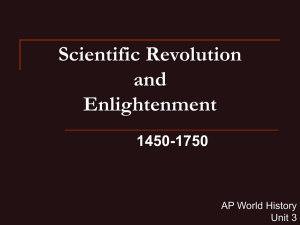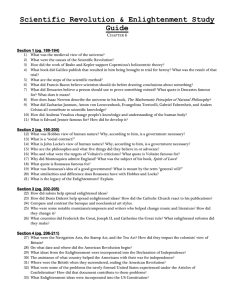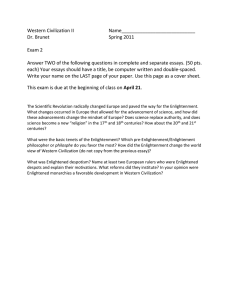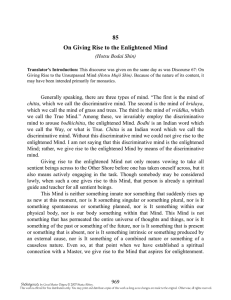Chapter 18 Test Review 1. The illegal book trade in France (612)
advertisement
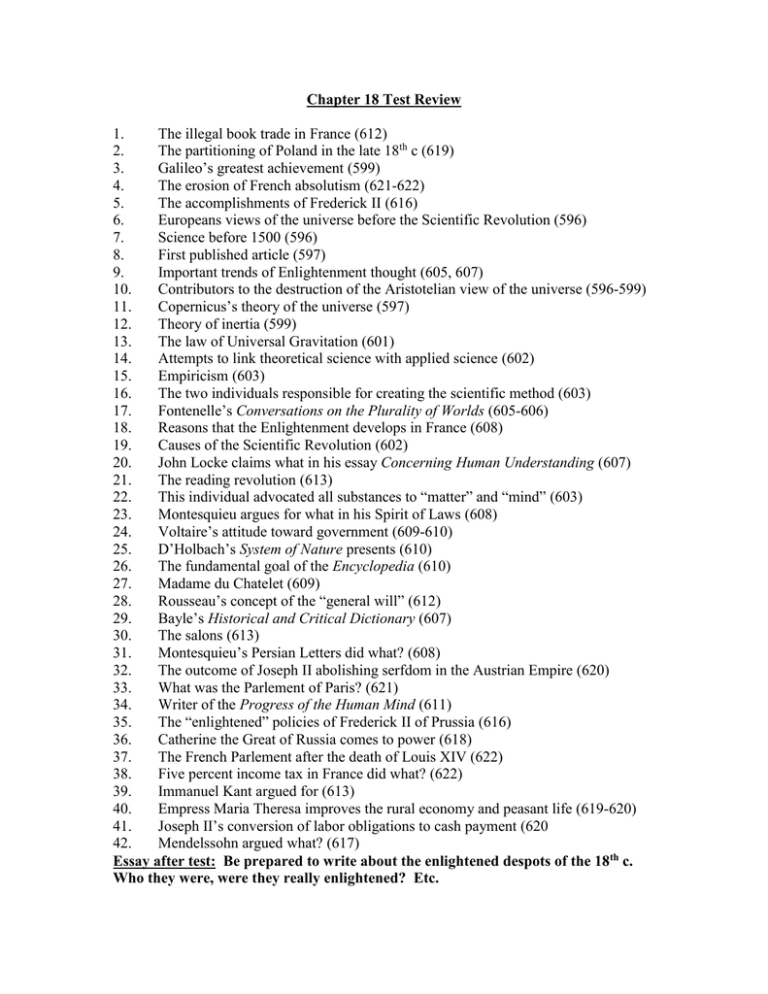
Chapter 18 Test Review 1. The illegal book trade in France (612) 2. The partitioning of Poland in the late 18th c (619) 3. Galileo’s greatest achievement (599) 4. The erosion of French absolutism (621-622) 5. The accomplishments of Frederick II (616) 6. Europeans views of the universe before the Scientific Revolution (596) 7. Science before 1500 (596) 8. First published article (597) 9. Important trends of Enlightenment thought (605, 607) 10. Contributors to the destruction of the Aristotelian view of the universe (596-599) 11. Copernicus’s theory of the universe (597) 12. Theory of inertia (599) 13. The law of Universal Gravitation (601) 14. Attempts to link theoretical science with applied science (602) 15. Empiricism (603) 16. The two individuals responsible for creating the scientific method (603) 17. Fontenelle’s Conversations on the Plurality of Worlds (605-606) 18. Reasons that the Enlightenment develops in France (608) 19. Causes of the Scientific Revolution (602) 20. John Locke claims what in his essay Concerning Human Understanding (607) 21. The reading revolution (613) 22. This individual advocated all substances to “matter” and “mind” (603) 23. Montesquieu argues for what in his Spirit of Laws (608) 24. Voltaire’s attitude toward government (609-610) 25. D’Holbach’s System of Nature presents (610) 26. The fundamental goal of the Encyclopedia (610) 27. Madame du Chatelet (609) 28. Rousseau’s concept of the “general will” (612) 29. Bayle’s Historical and Critical Dictionary (607) 30. The salons (613) 31. Montesquieu’s Persian Letters did what? (608) 32. The outcome of Joseph II abolishing serfdom in the Austrian Empire (620) 33. What was the Parlement of Paris? (621) 34. Writer of the Progress of the Human Mind (611) 35. The “enlightened” policies of Frederick II of Prussia (616) 36. Catherine the Great of Russia comes to power (618) 37. The French Parlement after the death of Louis XIV (622) 38. Five percent income tax in France did what? (622) 39. Immanuel Kant argued for (613) 40. Empress Maria Theresa improves the rural economy and peasant life (619-620) 41. Joseph II’s conversion of labor obligations to cash payment (620 42. Mendelssohn argued what? (617) Essay after test: Be prepared to write about the enlightened despots of the 18th c. Who they were, were they really enlightened? Etc.
